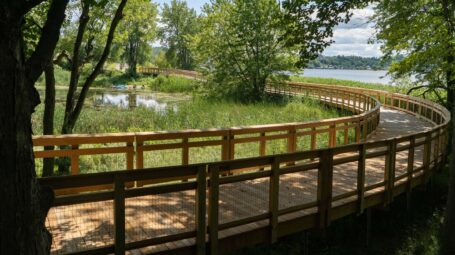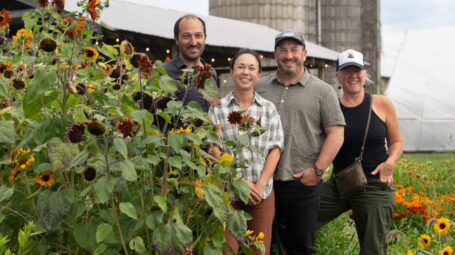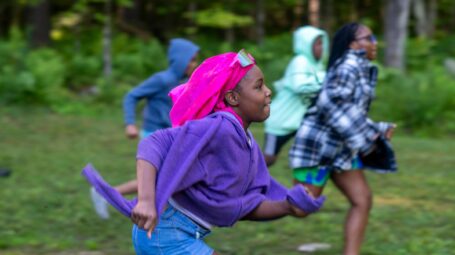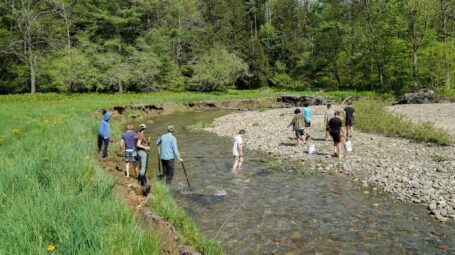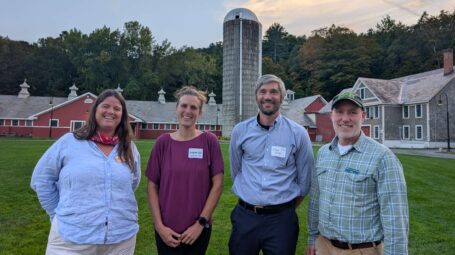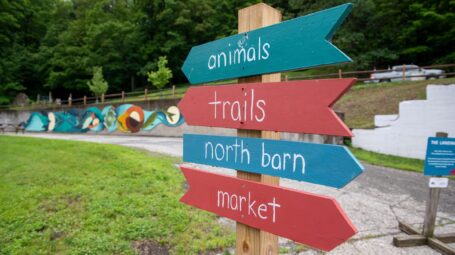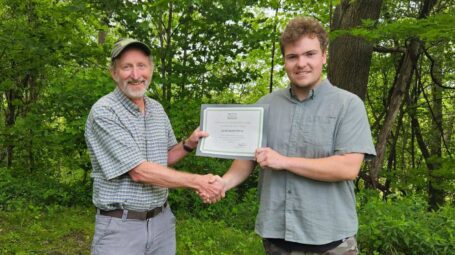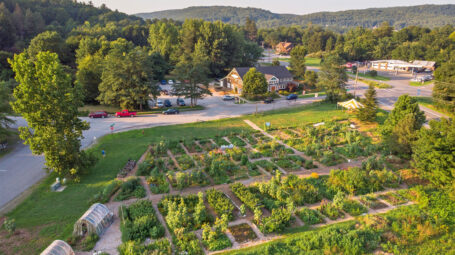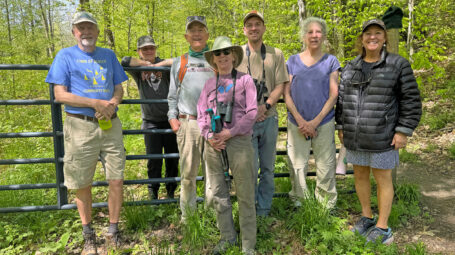- Protecting land for all and always
- Town and community forests created 38
- Families using community garden plots on VLT land 100+
- People who attended educational events this past year 2,300+
Protect land important to your community
Sledding hills, walking paths, town forests, or community gardens—these are some of the places that define our communities and that we help people conserve and care for. In partnership with towns and local land trusts, organizations, and volunteers, we provide support from vision to action. This could include legal help to buy or conserve land, fundraising planning and support, on-site ecological restoration, and the permanent conservation of the land to ensure it remains healthy and accessible.
Local champions with deep relationships drive the success of these projects. They are the ones who mobilize volunteers, raise awareness and funds, and steer the project at the local level. This often happens alongside town or city officials in alignment with local plans. In the end, these efforts protect treasured places, foster lasting relationships, and deepen connections to land.
Learn from the land
Over 200 parcels of conserved land support visitors all year long. This includes multi-use trails, open spaces for birding, streams for swimming, or forests for wandering. We host events, offer educational webinars, and produce online guides that feature these places and all that they have to offer.
You might be interested in natural communities and plants, Indigenous beliefs and practices, wildlife and birds, forest health, or farms or food. We cover these topics and more. Get out on your own or sign up for an event. And while you’re out there, tell us about it. We love to hear what’s happening out there and how we can support your experience.
Land for all
Land means different things to different people. For some it’s their livelihood, for others it’s a source of food, and for others it’s a refuge.
Not only should all people have access to land and food, all people should feel like they belong. What does that look like? Creating trails that are wide and graded for people of all abilities; clarifying Indigenous rights to gather, forage, and celebrate; growing and distributing food for people in need; and expanding land ownership for people from all backgrounds.
Get help with conserved land
If you own land conserved with the Vermont Land Trust you likely know us well. Every year, we reach out to see if you are planning any changes to your land or if you need advice about land management. We also visit all conserved land periodically to connect with you, answer your questions, and to document any important changes. Often conservation easements require landowners to get our approval before making a change, such as conducting a commercial timber harvest or building a new barn.
We are only a phone call or email away and look forward to helping you.

